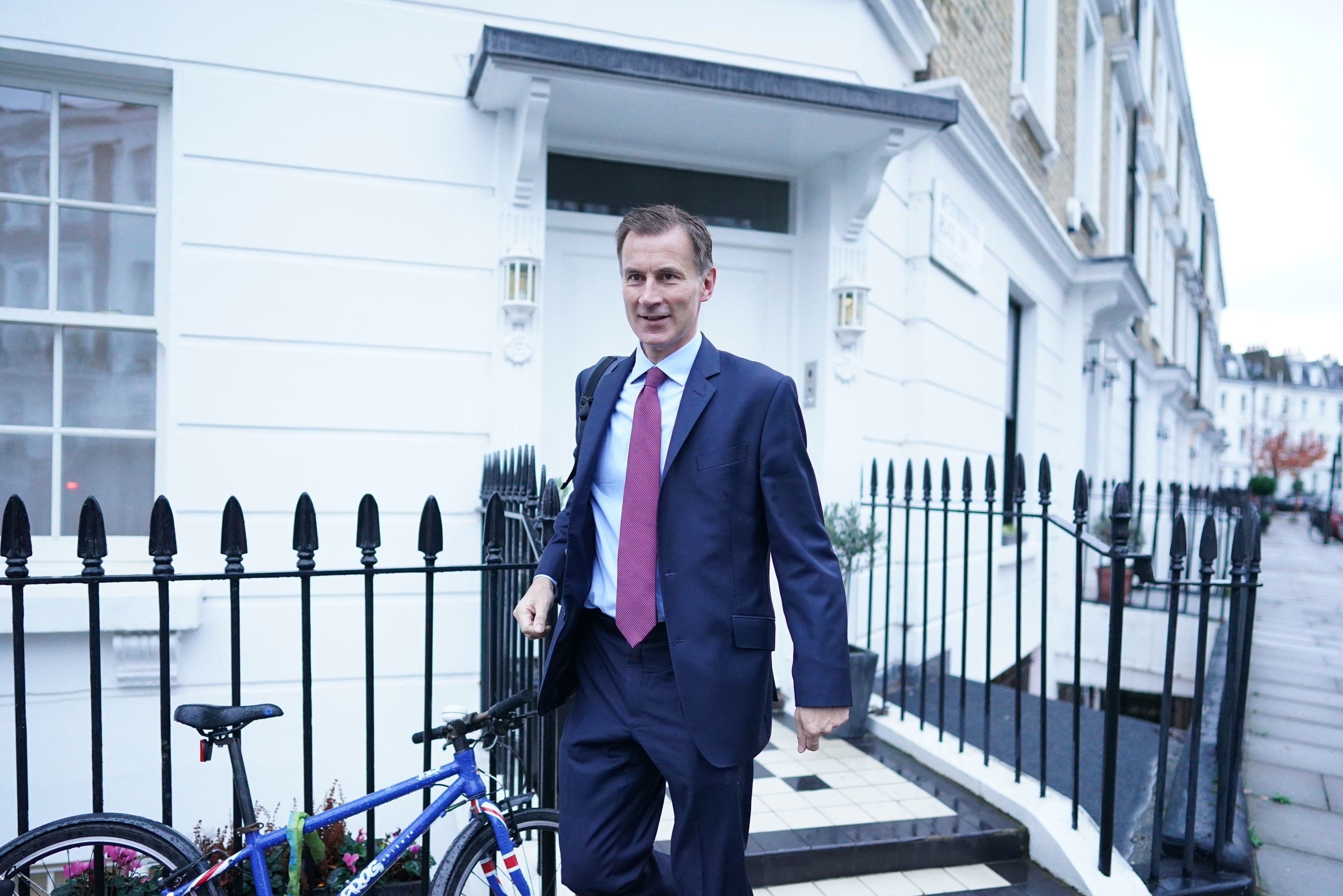There is no ‘black hole’ in Britain’s finances
The best way to prove that you’re a serious economics-understander is to get on TV and say, look, this spreadsheet I made proves that the best thing to do is increase child poverty, writes Phil McDuff


The chancellor, Jeremy Hunt, is about to drop the autumn statement and the British media is agog with speculation. Hunt has declared the existence of a “black hole” in the public finances, which requires plugging with some combination of taxes and spending cuts, and so the punditry is all aflutter.
Who will get taxed? What spending projects will get cut? Ooh, the drama! The speculation!
Meanwhile, the nominal opposition, Labour, are making sure they definitely, resolutely, will not promise to do anything differently, reminding everyone who puts a mic in front of one of the shadow cabinet that the government has run out of money, the cupboards are bare, the pockets are empty and other things of that nature.
The “black hole,” apparently caused overnight by Liz Truss’s ill-fated experiments in trying to stimulate growth by giving a lot of rich people a wheelbarrow full of money they didn’t need, is being used as an excuse to return to the glory days of austerity. A time when economics editors and politicians could pretend to be sober and serious statesmen by sitting on TV and shaking their heads sadly, explaining that there is just nothing for it, the numbers say we have to starve your gran.
Our punditocracy love getting to do the whole “difficult choices” bit on the BBC. The best way to prove that you’re a serious and sensible economics-understander is to get on the TV and say, look, this spreadsheet I made proves that the best thing to do is increase child poverty. It’s good for the media class because it means they can give the impression of making some kind of sacrifice while it not actually impacting them or anyone they know. Win, win.
Nobody is asking how the black hole exists, what it means, why the first thing we heard about it was a couple of weeks ago. Everyone is getting far too much pundit mileage out of the term to ask “is it even real?”
Economists at the Progressive Economy Forum demonstrated that this hole in the public finances is a result of certain assumptions plugged into economic models and forecasts. Change a few numbers and it shrinks. Indeed, as they say:v “Reversing a decision to exclude the Bank of England’s debt from the government’s own debt figure, made in January 2022, completely wipes out the projected ‘fiscal hole’ and, on the official forecasts, leaves the government with an additional £14bn to spend against its own debt targets by 2027.”
When you’re dealing with a national economy the numbers are all so big that you only have to nudge things a percentage point here and there to produce shifts of tens of billions of pounds. What’s more, the targets that the government is falling short of are not natural laws of the universe. They’re targets the government made up for itself.
Apparently everyone forgot what happened 12 years ago, when George Osborne also set a bunch of arbitrary targets which he claimed justified cutting government spending during a recession, and succeeded mainly in plunging the country into a prolonged period of economic stagnation from which it has yet to recover.
The point here is not to say that the government should be using one set of accounting rules or another, or assuming 4 per cent rather than 5 per cent in column 63 of its big “how many hypothermic pensioners does the economy need to be happy” spreadsheet. The point is that if you’re making decisions that mean children will die because their houses are riddled with mould, you should have more to go on than “well we changed the accounting rules 12 months ago.”
Of course, the dirty secret of all of this is that the stated rationales are always backwards. They have a set of policies that they want to enact, and they’re going to produce the models that justify those policies. The black hole is not the reason for the policies, the policies are the reason for the black hole.
To keep up to speed with all the latest opinions and comment, sign up to our free weekly Voices Dispatches newsletter by clicking here
This makes it all the more depressing and infuriating when Labour sits side-by-side on the TV sofas with the Tories, conceding everything, promising nothing, insisting only that they, too, can be serious and sensible enough to cut benefits for already-struggling families. Not brave or tough enough, though, to say that there’s a shedload of money in the pockets of the rich which, if we really want to “plug the fiscal black hole,” is a much fairer source of funds than shrinking universal credit or freezing the basic tax threshold.
The people of this country deserve far better than to be used as endless demonstrations that our political class are brave and tough enough to choose to immiserate us again, year on year.
You want a tough, brave, choice? Tax the rich, prioritise getting the homeless off the streets, make sure every child has enough to eat. And if something else has to give in the economy, if we end up with fewer treats and baubles but we have insulated homes and nourished children, well, I guess that’s a price that we’d just have to pay.
That’s not on the cards this autumn statement though. Tough choices from the Tories; other, strangely similar, tough choices from Labour – and us down here at the bottom, never getting to make a choice that matters.

Join our commenting forum
Join thought-provoking conversations, follow other Independent readers and see their replies